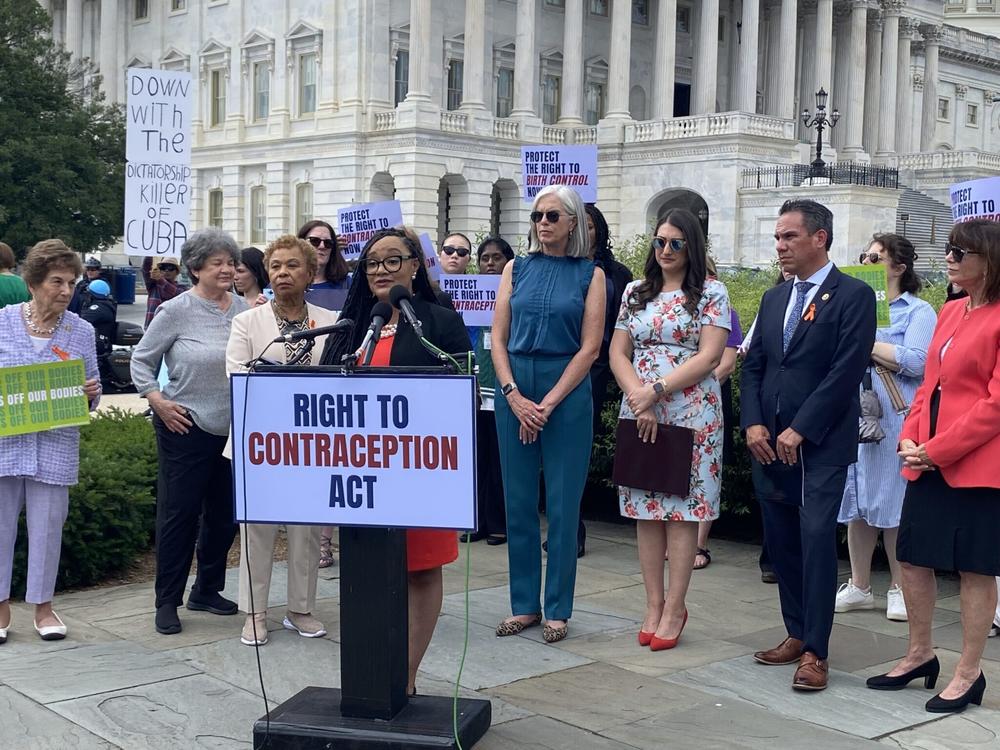
Caption
On Tuesday, June 4, 2024, U.S. Senate Democrats held a hearing on abortion access and House Democrats introduced legislation that would guarantee people throughout the country the right to contraception. U.S. Rep. Nikema Williams, an Atlanta Democrat, speaks about the legislation during the press conference in front of the Capitol.
Credit: Jennifer Shutt/States Newsroom

